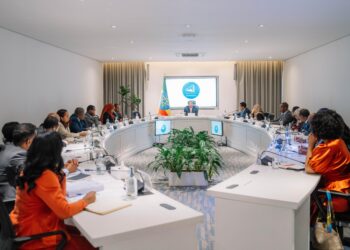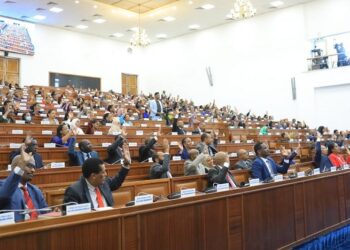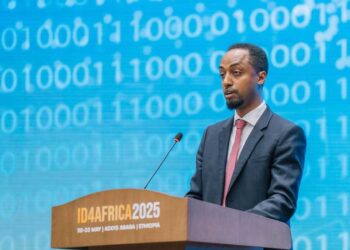Record Budget Proposal Presented to Parliament
Ethiopia’s House of People’s Representatives began deliberations on the draft budget for the 2025/2026 fiscal year during its 35th regular session. Finance Minister Ahmed Shide presented a record ETB 1.93 trillion budget, marking a 34% increase from the previous year. The minister attributed this ambitious figure to significant economic progress, including an 8.5% growth rate, inflation dropping from 34.5% to 13%, and export revenues reaching a historic $7.2 billion.
Funding Strategy and Economic Reforms
Minister Shide outlined that approximately 75% of the budget (ETB 1.5 trillion) will be funded through domestic revenues, foreign aid, and grants, with the remaining ETB 500 billion expected from government bonds and foreign loans. He emphasized ongoing macroeconomic reforms, including a strict monetary and fiscal policy, which have stabilized the economy and reduced the fiscal deficit to 2.2% of GDP (gross) and 1% (net). The government has also ended direct lending from the National Bank of Ethiopia to curb inflation.
Budget Allocation and Debt Challenges
The budget allocates ETB 1.2 trillion for recurrent expenditure, ETB 415 billion for capital projects, ETB 315 billion for regional support, and ETB 14 billion for Sustainable Development Goals. However, debt servicing consumes ETB 463 billion, surpassing capital spending by ETB 48 billion, highlighting the burden of debt amid talks for a $3.5 billion relief package. Opposition MP Desalegn Chane, PhD (NAMA) raised concerns about new taxes, including a 15% VAT, excise tax, and motor vehicle circulation tax, conflicting with the phase-out of fuel subsidies and straining civil servants amid rising costs.
Tax Increases and Public Reaction
The government aims to raise ETB 1.1 trillion (73% of public revenue) through taxes, targeting a four-point increase in the tax-to-GDP ratio over four years. Minister Shide defended the tax hikes as part of an IMF-backed reform agenda, citing export growth and a narrowing exchange rate gap. However, critics argue the measures, including fuel tax contradictions, exacerbate the cost of living, with the budget proposal now under review by parliament’s Plan, Budget, and Finance Affairs Standing Committee ahead of ratification by July 8, 2025.






















